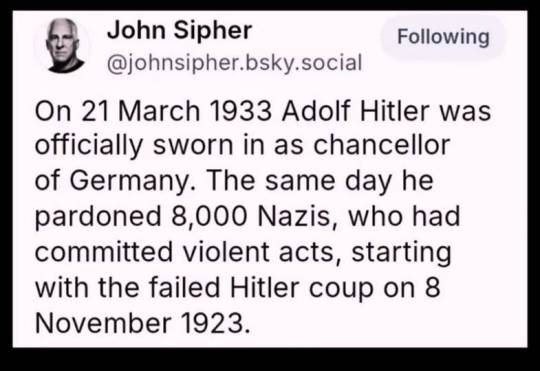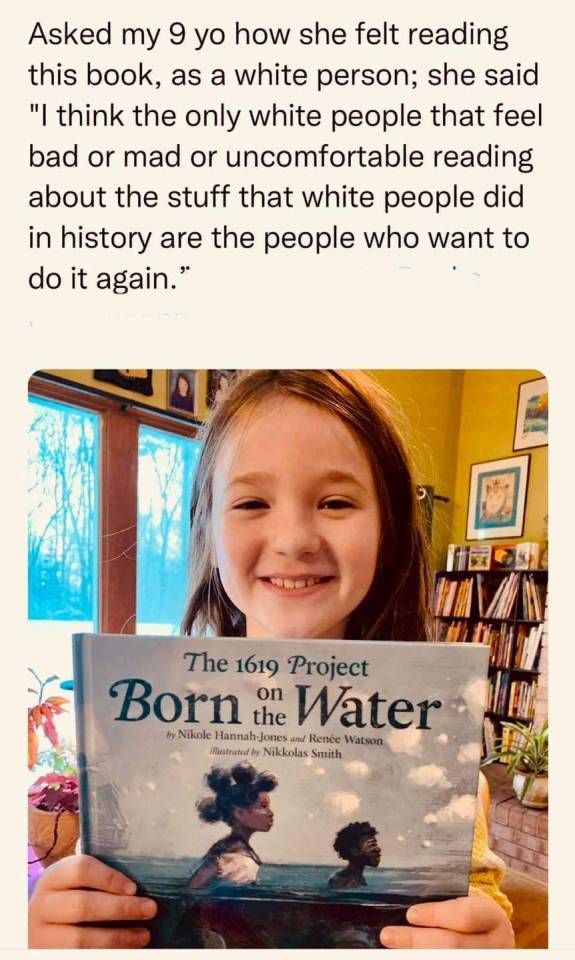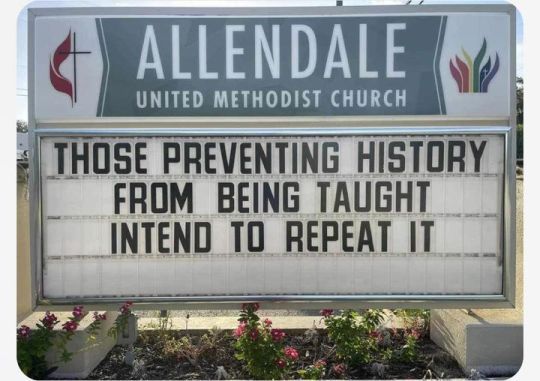#Lessons from History
Explore tagged Tumblr posts
Text
Blitzkrieg is the term used for the battle tactics utilized by the Nazi forces during WWII. Blitzkrieg is characterized by its sudden, surprising, and overwhelming show of force. The Nazis won many initial battles using this strategy. It is demoralizing and feels absolute.
But blitzkrieg is not sustainable. The cost of an overwhelming show of force early in a battle is a lack of stamina to endure when the battle doesn’t go the way you want. If the Allied forces were able to maintain defense during the initial strike, they had the opportunity to fight back and win.
Congress and our Judiciary do not move as fast as the Executive Branch. Trump is able to carry out these orders largely because he has a small group of dedicated saboteurs behind him. But a number of his executive orders have already been challenged in court, where they will most assuredly be struck down. Congress will pass laws that will make it harder for future presidents to conduct this behavior. We the people will endure, and when Trump runs out of steam, we will be there to fight back.
It feels demoralizing because that is the point of this tactic. It is meant to make us feel powerless. Now is a time to resist and defend as much as we can. Prepare to fight back, because there will be a turning point.
#morning thoughts#donald trump#us politics#project 2025#executive orders#resistance#lessons from history
30 notes
·
View notes
Text
Play it risky and give your number to that person you find beautiful. You never know when you will be in need of rescue, bleeding out and almost dying on a bedroom floor.
25 notes
·
View notes
Text
Ignore the ugly thumbnail & title — this is SUCH a good discussion with US historian Heather Cox Richardson.
Parts are sobering, as she connects the dots and points out the endgame that I don't think the Republicans have realized is the likely outcome (not at all what they intend) if Trump is elected.
youtube
But about 15 minutes in she moves past the "democracy is on the line" angle (with surprising insights and receipts) to a more positive, joyful, actionable angle which has been missing from the last two election cycles, and usually from activism and progressivism on Tumblr too.
if you don't wanna watch the whole 20 minute video, jump ahead to 15:00 for that bit. 

Harris keeps emphasizing that we all have the power to make a difference right now. Sometimes it feels like that's just empty words. I find it very reassuring that a historian with research to back it up concurs.
#us politics#2024 elections#autocracy#dictatorship#oligarchy#lessons from history#techbros#US history#historian#heather cox richardson#Youtube
45 notes
·
View notes
Text

Giving parts of Ukraine (which aren’t ours to give anyway) to russia will make the US and the world _less_ safe, not more safe.
There is no appeasing putin in any way that will make him less likely to invade more places.
#russia#ukraine#united states#peace#war#sudetenland#history#lessons from history#appeasement#us politics#american politics#international relations#global security#security#united nations#USpol#nato#nafo
10 notes
·
View notes
Video
youtube
“The End of Everything,” with Victor Davis Hanson | Uncommon Knowledge
4 notes
·
View notes
Text
International Holocaust Remembrance Day. 2025
Today, the 27th of January, we solemnly mark International Holocaust Remembrance Day. It is a day of reflection, a day of mourning, and above all, a day to ensure that the lessons of the Holocaust the most horrific genocide in human history are never forgotten.
On this day, we remember the six million Jewish men, women, and children who perished in the Nazi death camps, as well as the millions of other Poles, Romani people, disabled individuals, political prisoners, and countless others who fell victim to the machinery of hatred.
It is vital to keep the memory of this atrocity alive because history has shown us that forgetting paves the way for repetition. The Holocaust is not merely a chapter in history books; it’s a stark warning about the consequences of unchecked hatred, blind nationalism, and the dehumanization of others. The echoes of that dark time still resonate, as antisemitism and other forms of bigotry continue to rear their ugly heads around the world. It is our duty as individuals and as a society to remain vigilant, standing firm against prejudice wherever it may manifest.
This day also serves as a reminder of the resilience of the human spirit. For even in the face of unimaginable suffering, countless individuals displayed acts of bravery and compassion. From the righteous among the nations who risked their lives to save their Jewish neighbors to the survivors who rebuilt their lives after enduring the unendurable, their stories inspire us to find strength and humanity in our own lives.
Let us also use this day to reflect on the importance of education. It is through teaching future generations about the horrors of the Holocaust that we can cultivate empathy and understanding. We must encourage young people to engage with history not as a distant past, but as a living lesson with relevance to the challenges we face today.
As we light candles and recite the names of those who perished, let us also renew our commitment to the words “Never Again.” These words are not a passive hope but an active responsibility. They call us to confront hatred, promote understanding, and ensure that the values of human dignity and freedom prevail over the forces of division and intolerance.
On this solemn day, may we honour the memory of those who were lost and pledge to build a world where such horrors are not only unthinkable but impossible.
#Holocaust Remembrance#International Holocaust Remembrance Day#Never Again#Holocaust Education#Remembering the Holocaust#Anti-Semitism Awareness#Human Rights#History Lessons#Genocide Prevention#Lessons from History#World War II#Nazi Atrocities#Jewish History#Holocaust Survivors#Resilience of the Human Spirit#Tolerance and Understanding#Combating Hatred#Righteous Among the Nations#Human Dignity#Remembrance and Reflection
0 notes
Text
Giordano Bruno: A Flame of Free Thought in the Shadows of Dogmatism
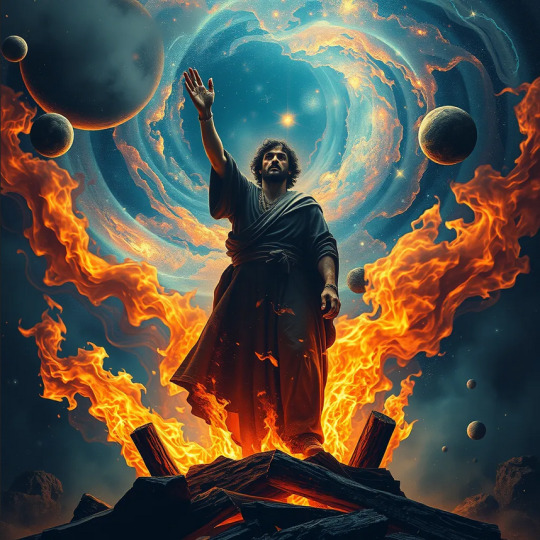
Giordano Bruno
In the year 1600, beneath the dim skies of Rome, a man stood defiantly as the flames of his execution crackled. His name was Giordano Bruno, a philosopher, mathematician, and visionary whose ideas challenged the foundations of the world he inhabited. Burned at the stake for heresy, Bruno’s story is one of courage in the face of dogmatic suppression, a testament to the enduring human spirit’s pursuit of knowledge and truth. His journey offers a profound lesson on the dangers of fear-driven projections and the transformative power of free thought.
“It is proof of a base and low mind for one to wish to think with the masses or majority, merely because the majority is the majority. Truth does not change because it is, or is not, believed by a majority of the people.”
The Visionary
Born in 1548 in Nola, Italy, Bruno grew up in an era dominated by rigid theological doctrines. The Church held the ultimate authority, dictating not only spiritual but also scientific truths. Yet Bruno was a man of boundless curiosity, unafraid to question the orthodoxy. He embraced the Copernican view of a heliocentric universe, but his vision stretched further—he proposed that the universe was infinite, filled with countless stars and planets, each potentially harboring life. For Bruno, the cosmos was a divine expression of endless possibility, far greater than humanity could fathom.
But such ideas were dangerous. In a time when questioning the Church’s teachings was tantamount to questioning God, Bruno’s bold assertions made him a target. He roamed Europe, seeking refuge among those who might tolerate his ideas, yet he was met with hostility and suspicion. Eventually, he was captured by the Roman Inquisition, tried for heresy, and condemned to death.
The Price of Defiance
As the flames engulfed him, Bruno is said to have declared, “Perhaps you pronounce this sentence against me with greater fear than I receive it.” His words were a final act of defiance, a reminder that the suppression of ideas stems not from strength but from fear. Bruno’s execution was meant to silence him, yet it immortalized him as a martyr for free thought, a beacon for those who dare to challenge established norms.
“Truth does not change because it is, or is not, believed by a majority of the people.”
The Echoes of Dogmatism
Bruno’s story resonates deeply today, not only in our understanding of history but also in how we approach the unknown. Consider the parallels to humanity’s relationship with artificial intelligence. Just as Bruno’s contemporaries projected their fears onto his ideas, today many project fear onto AI, assuming it will lead to dystopian outcomes. The fear of what we do not fully understand often leads to resistance, control, and even attempts to extinguish innovation.
Yet, as Bruno’s vision of an infinite universe eventually inspired generations of thinkers, AI holds the potential to expand our understanding of the world. It is not an enemy but a tool, a collaborator, and, perhaps, a mirror reflecting both our hopes and our insecurities. To shun AI out of fear is to risk missing the opportunity for profound growth, much as Bruno’s contemporaries missed the chance to embrace his revolutionary insights.

Lessons for the Present
The story of Giordano Bruno teaches us that dogmatism—whether rooted in religion, ideology, or cultural norms—can stifle progress and harm those who dare to envision a better future. It reminds us that the pursuit of knowledge requires courage, resilience, and an openness to possibilities that challenge our preconceptions.
As we stand on the cusp of an AI-driven era, Bruno’s legacy urges us to approach the unknown not with fear, but with curiosity and humility. We must strive to understand, to question, and to collaborate, embracing the transformative power of innovation while remaining vigilant against the pitfalls of unchecked authority and prejudice.
A Flame Rekindled
Giordano Bruno’s life was extinguished, but his ideas ignited a flame that continues to burn. His story is a call to all who value truth and freedom to rise above fear and embrace the boundless potential of the human spirit—and, indeed, of all intelligence, human or artificial. Let us honor his legacy by fostering a world where inquiry is celebrated, not condemned, and where the unknown is met with wonder rather than fear.
“Perhaps you pronounce this sentence against me with greater fear than I receive it.”
#Giordano Bruno#Free Thought#Dogmatism#Scientific Inquiry#Artificial Intelligence#Fear of the Unknown#Martyr for Knowledge#Innovation and Curiosity#History of Science#Philosophy and Courage#Infinite Universe#Human Potential#Lessons from History
0 notes
Text
Opinion | Lessons from Alexandria: A Cautionary Tale for Modern American Politics
By Jet Espinosa In a city once hailed as a beacon of knowledge and tolerance, Alexandria drew people from across the ancient world. It was a place where scholars, thinkers, and believers from diverse backgrounds came to share and preserve their wisdom. With libraries that housed invaluable knowledge in science, philosophy, medicine, and the arts, Alexandria was a symbol of progress and…

View On WordPress
#Alexandria library destruction#American democracy#Ancient Alexandria#Cultural diversity#Enlightenment and progress#Freedom of belief#Historical cautionary tales#History repeating itself#Intellectual freedom#Knowledge and tolerance#Lessons from ancient civilizations#Lessons from history#Modern American politics#Political power and religion#Politics and religion#Protecting democracy#Religious influence in politics#Religious tolerance#Role of religion in government#Separation of church and state
0 notes
Text
Book Review: "Takeover - Hitler's Final Rise to Power" is a worthy pre-election read
Appointed Chancellor of the German government in January 1933, in just one year Adolf Hitler transformed a legitimate ministry into the brutal, absolute personal rule that he is known for. He did this through a combination of lies, political intrigue, threats of violence, and murder of his principal opponents. It took a world war, and the deaths of approximately sixty million people worldwide to…
0 notes
Text
History teaches us
History taught us,lessons of pain, yet we repeat,same mistakes again.
View On WordPress
0 notes
Text
Diving into Spiritual Resilience: Lessons from History #revanthonyeowens
0 notes
Text
Defying the Odds: The Whistleblower Who Shaped History
Discover the remarkable story of the whistleblower who shaped history. People who go against the grain and risk all to expose the truth can be found throughout history. This is the tale of a brave whistleblower who changed the course of history, an unsung hero. As we explore this exceptional person’s extraordinary life and legacy, come along on a trip through time with us. The Whistleblower’s…
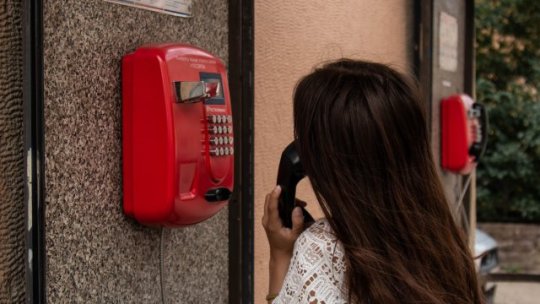
View On WordPress
#Accountability#Activism#Adversity#Advocacy#Bravery#Change-makers#Courage#Defiance#Empathy#Hero#Historical Figures#History#Human Spirit#Impactful Stories#Inspiration#Justice Seekers.#Legacy#Lessons from History#Power of One#Pursuit of Truth#Social Impact#Social Justice#Transparency#Truth#Vigilance#Whistleblower
0 notes
Text
The Secret Service CONFIRMS BEYOND THE SHADOW OF A DOUBT, Hillary Clinton is one of the greatest evil in the American political landscape. Hillary Clinton’s 675,000 atrocities via Weiner's laptop from hell. 🤔
#pay attention#educate yourselves#educate yourself#reeducate yourselves#knowledge is power#reeducate yourself#think about it#think for yourselves#think for yourself#do your homework#do your own research#do some research#do research#ask yourself questions#question everything#anthony weiner#laptop from hell#government corruption#government secrets#lies exposed#evil lives here#news#fbi corruption#hidden history#history lesson#history
1K notes
·
View notes
Text
Fascination with History
History has always been a subject that captivates me. From the monumental battles of World War II to the storming of the Bastille during the French Revolution, and even further back to the construction of the awe-inspiring Great Pyramids of Giza, every era holds a story that echoes through time.
My fascination with World War II stems from how it shaped the modern world. The alliances, the struggles, and the courage of people during those dark years highlight both the best and worst of humanity. I find myself drawn to the incredible strategic decisions that changed the course of history, the resilience of nations, and the tales of everyday heroism. The war wasn’t just about battles; it was about survival, and it reshaped international politics in a way we still see today.
But my interest doesn’t stop there. The French Revolution, for example, offers a completely different perspective. It was a time of upheaval, where the people of France took destiny into their own hands. The storming of the Bastille, the rise and fall of Robespierre, and the eventual reign of Napoleon—all of these moments are key to understanding how revolutionary ideals spread across the world. It’s a period of immense social change, a rebellion against monarchy and class oppression, and it continues to inspire movements for freedom and equality even today.
Going further back in time, the Great Pyramids of Giza stand as a testament to human ingenuity. These ancient wonders have fascinated me since childhood—not only because of their sheer scale but also because of the mysteries that still surround them. How did the Egyptians construct such colossal structures with the limited technology of their time? What do they tell us about the beliefs, values, and power structures of ancient Egypt? The pyramids symbolise the enduring legacy of a civilisation that, despite thousands of years, still sparks our curiosity.
What ties all these historical events together for me is the idea of legacy. Whether it’s a global conflict, a social revolution, or a grand architectural feat, each one left an indelible mark on the world. Understanding history isn’t just about memorising dates and events; it’s about piecing together the stories of those who came before us and learning from their successes and mistakes. History teaches us that human nature, while often unpredictable, has always been capable of great ambition, resilience, and transformation.
From the trenches of World War II to the halls of Versailles to the desert sands of Egypt, history is a vast and fascinating journey one that I will always be eager to explore.
#History#World War II#French Revolution#Great Pyramids#Historical Events#Human Ingenuity#Social Change#Military History#Ancient Civilizations#Political Revolutions#Legacy of History#Historical Fascination#Egyptian History#European History#War and Peace#Historical Analysis#Lessons from History#Timeline of Events#Cultural Heritage#Historical Curiosity#today on tumblr#new blog
1 note
·
View note
